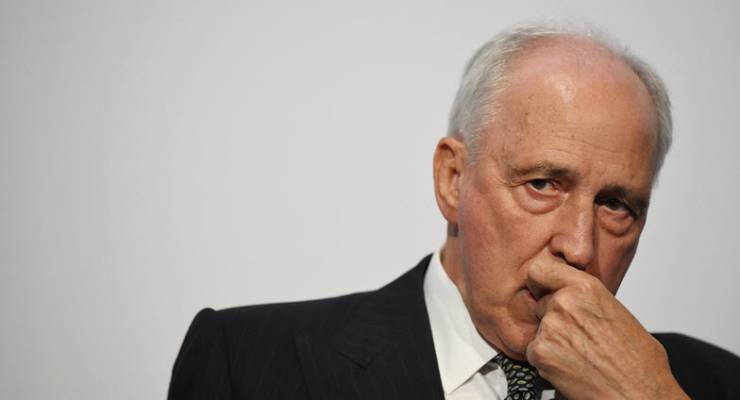
Unsurprisingly, the call for progressive Australians to reassess their admiration for Paul Keating proved a divisive one among our readers. While some echoed Jeremy Poxon’s argument, others thought Keating’s legacy needed measured analysis. Meanwhile, readers dug into the slackening of political advertising rules.
On the real legacy of Paul Keating
Denny Meadows writes: I love Keating’s rhetoric but Jeremy Poxon is right. He blazed the neoliberal trail that enabled Howard and Costello to do their worst. It is best to never lose sight of that.
Kate Hamilton writes: Nice try, but perhaps PJK admirers (guilty as charged) believe that he would have something to offer today, both intellectually and rhetorically.
Michael Powell writes: Keating was not the messiah and often more a bovver boy than a very naughty boy. However dismissing him as a simple neoliberal villain misses the point. The moribund economy inherited by the Hawke-Keating government was transformed and needed to be. We can all point to huge errors like selling the Commonwealth Bank, however Keating had a very deliberate policy of creating a social dividend through tax transfers and social policy like Medicare. Certainly wages stalled, but transfers of the social wage were and still are significant and strategically innovative. Keating has to be seen for what he was — a creative innovator at a time of great need for such innovation. Given the staggering legacy of fiscal irresponsibility created by treasurer Howard, Keating did an extraordinary job of transforming the economy in profoundly difficult times.
Harry Nankin writes: Its worth also observing that the left’s unjustified fawning over PJK also ignored his ignorant indifference — no, his rampant hostility — regarding environmental and conservation questions and the class of people he imagined to be eco-activists. His infamous “Balmain basket weavers” quip promulgating the stereotype of older (and presumably house-bound) women as typical environmentalists also reflects an incipient ageism, ableism and misogyny that I have yet to hear critiqued by the commentariat.
On new rules for political advertising
Glen Davis writes: This is another desperate attempt to stack the campaign in favour of those sitting members who have already sold their souls to the party machines. It is an attempt to bring bias to an election. It should be an Electoral Act offence to apply any public monies to a campaign, whether for a sitting member or any other candidate. The penalty should include disqualification from being elected. Separately, outside of campaigns, it should be an offence to spend any public monies in promotion of a political party, any member of a political party or any policy of a political party.
Send your comments, corrections, clarifications and cock-ups to boss@crikey.com.au. We reserve the right to edit comments for length and clarity. Please include your full name if you would like to be considered for publication.







Crikey is committed to hosting lively discussions. Help us keep the conversation useful, interesting and welcoming. We aim to publish comments quickly in the interest of promoting robust conversation, but we’re a small team and we deploy filters to protect against legal risk. Occasionally your comment may be held up while we review, but we’re working as fast as we can to keep the conversation rolling.
The Crikey comment section is members-only content. Please subscribe to leave a comment.
The Crikey comment section is members-only content. Please login to leave a comment.